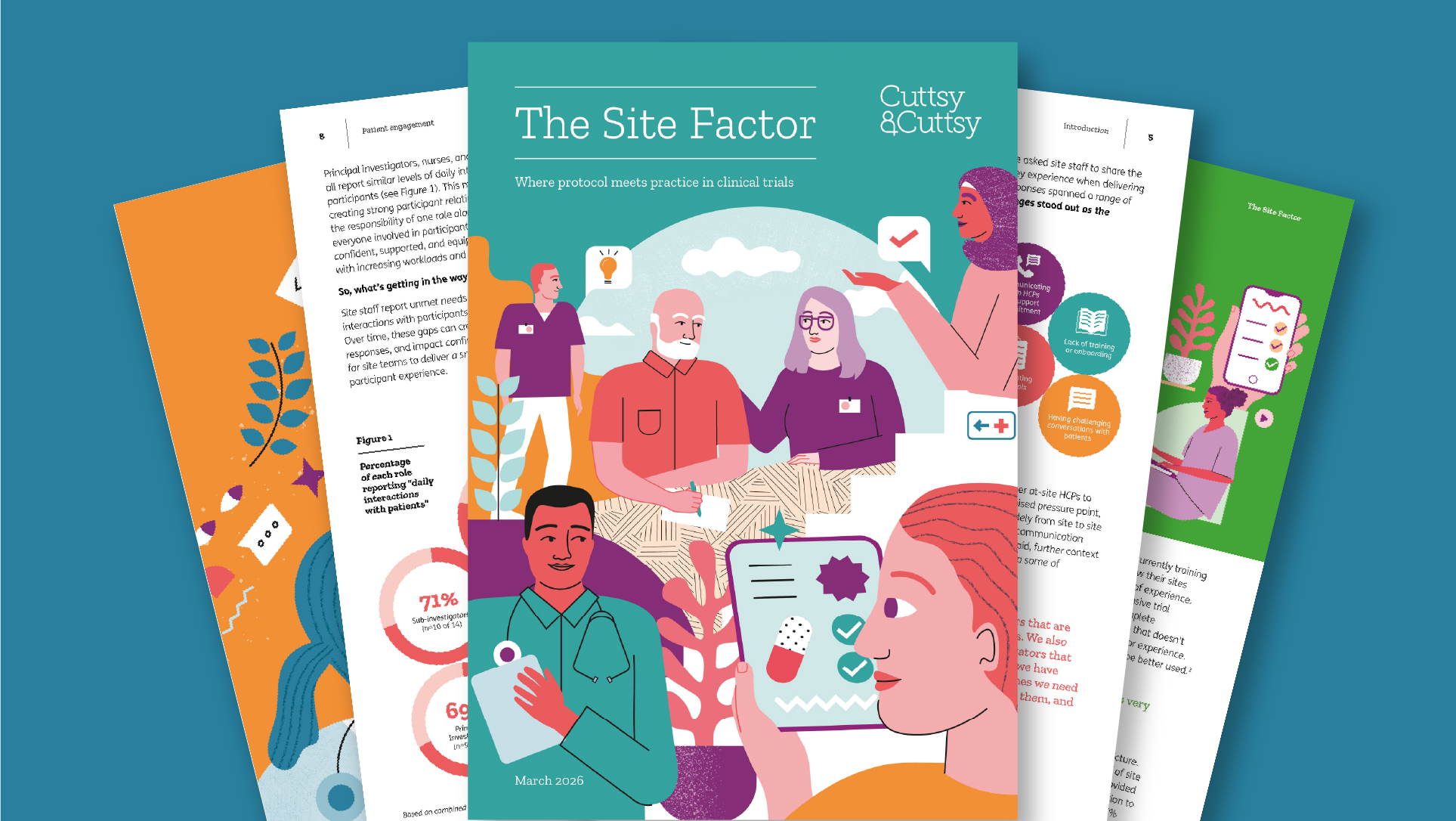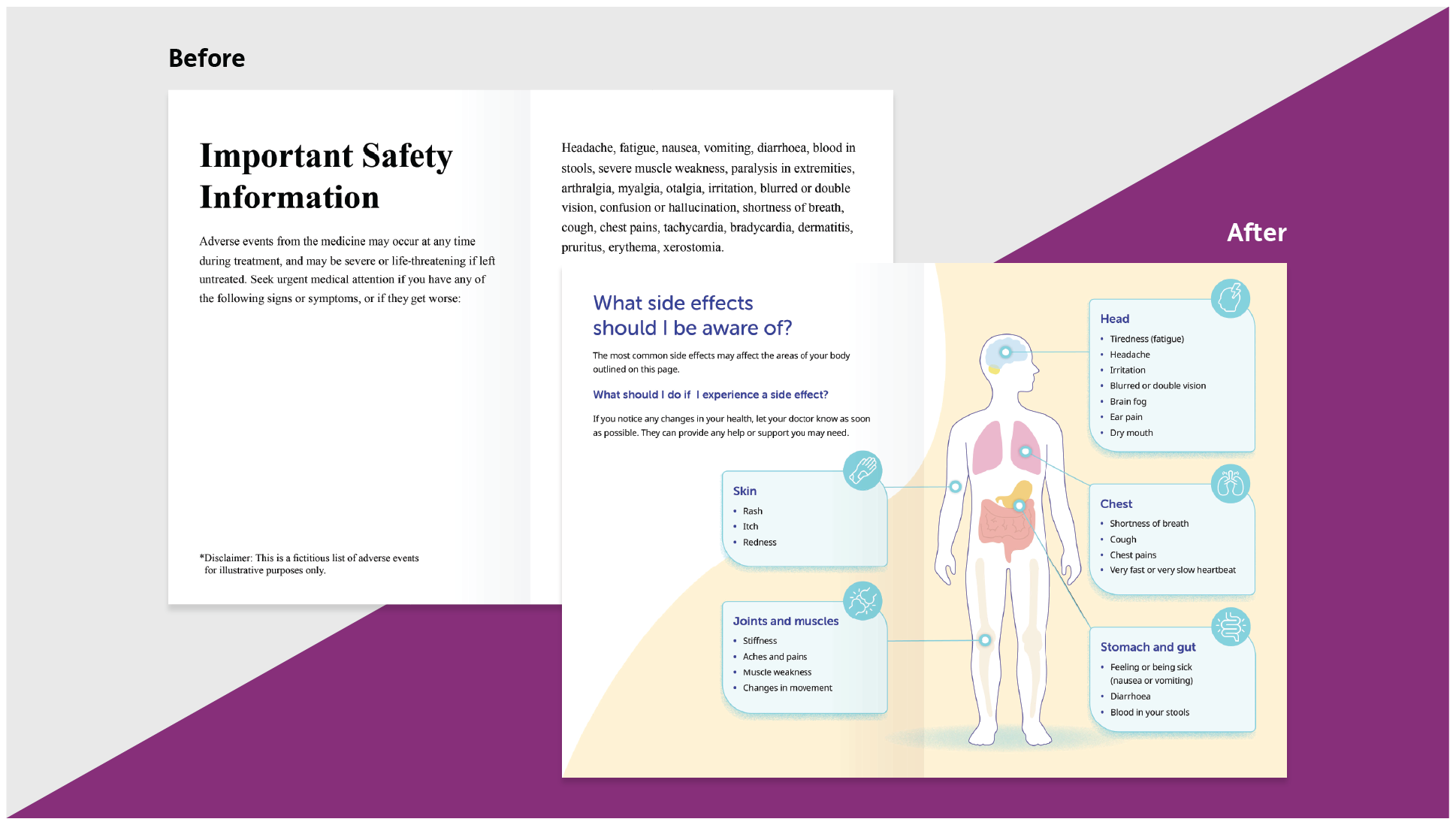Life science disruptors on the future of healthcare

If you haven't heard about Pharmageddon yet, let us fill you in. Pharmageddon was a novel 2-day innovation experience from Impatient Health that brought together people from across the pharma industry, patients included, to challenge the status quo in healthcare. A series of panel discussions and group activities raised and reframed the big topics of today: patient empowerment, AI, digital health being just a few. So, what needs to change to better the health for all?
1. A patient-empowered industry

Patient empowerment was front and centre of almost every conversation, finally. It seems the message has got through that equipping patients with the information, the tools and the autonomy to play an active role in their health is the real future of healthcare. "Patient empowerment is helping patients to speak up for themselves in an environment they may not normally be able to.” – Patient advocate
This went hand in hand with discussions around patient-centricity, but as one patient advocate highlighted, that’s a term that’s becoming outdated, because semantics matter. Patients no longer want to be in the centre of the table, they want to be at the table, as equal partners. There’s still a way to go, but the future is this: informed patients, playing an active role in shared decision-making, driving patient-led research, generating patient-reported outcomes, and co-creating the cycle of medicines hand-in-hand with the pharma industry. Health literacy and inclusive practices will be key to this ambition though. We need to help the pharma industry and health systems be more open and accessible to a wider range of people because, as everyone knows, if you’re not represented in the data, or your voice isn’t heard, you’re not visible. “No data, no knowledge, no development.” – Patient advocate
2. Personalising healthcare to every lived experience
.jpeg)
The second hot topic was treatment personalisation. We imagined futures where we had digital twins and treatment plans that were personalised based on data. The positive impacts pictured patient’s living longer, healthier lives and having greater certainty of outcomes. Unfortunately, these were counteracted by some stark negatives – possible discrimination, lack of choice, lifestyle policing and once again, lack of personalisation for those not adequately represented by the data. While personalised care isn’t new, what is shifting is a more personalised approach to communication, now made easier by AI-models. Instead of broad segmentation, we have behavioural science playing a more central role to understand what drives individual choices and how to influence change.
3. Co-delivering holistic healthcare ecosystems

Disconnected and siloed – these were the sentiments that described today’s healthcare system for many. While integrated health systems are trying to be implemented, there remains an urgency to deliver a more holistic approach to care for all. As one patient advocate highlighted "Treatment alone isn't enough anymore. It has to be about the entirety of their life. None of it is easy. We need to make it easier."
This requires a shift in our approach to how healthcare is delivered: whether it’s thinking about how treatments work within a patient’s life, supporting caregivers equally alongside patients, or acknowledging that many people in the world live with more than one condition so why not have consultations that address them all in one sitting, with all experts together? As one pharma representative put it, "We’re in an egosystem. Instead, it needs to be a more equal system." This means greater cross sector collaboration and more fluid, transparent sharing of data.
4. Change starts from within

Nothing will change without breaking and recreating current ways of working internally. Agile working was a favoured topic, positioned as a mindset (not a process) that everyone should do better. The pharma industry needs to put the fear of failure to one side and give “the right people together autonomy and agility to test and improve ideas towards a shared goal." This means not letting process get in the way as it "kills innovation.” A similar message was applied to compliance. There is room in the code to do good things now so “question the SOPs – who wrote them and why?”. Finally, for pragmatic ways to “boost digital IQ on the front lines”, consider reverse mentoring and shadow boards. We love our weekly knowledge sharing sessions so getting younger people to teach the older ones of us ways of the digital world could be a great one to add.
Reflecting on the event overall, yes, some of the topics aren’t new. But the atmosphere made it unique. We all went to make a change and being connected by this common goal seemed to make it easier to talk to people on a more equal level. And it's not over. The emails and posts shared since the event indicate a commitment to keep the conversations going. We’re in, are you?












